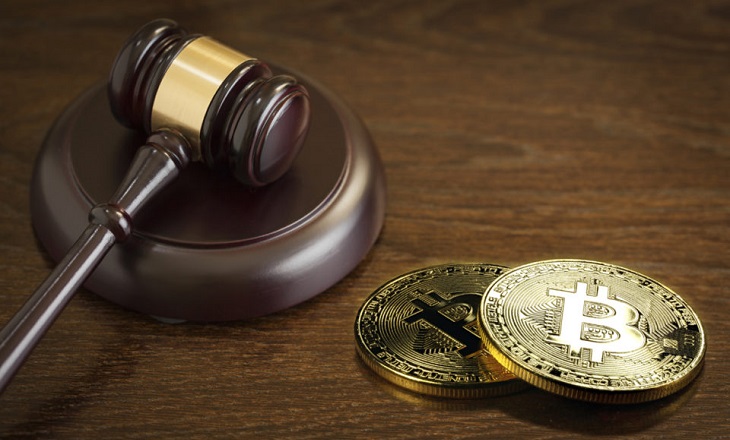Digital currencies and distributed ledger technologies (DLT) have been faced with continuous change and fluctuation in their legislative environment in recent years, Forbes reports.
Electronic money was not always as popular as it is today upheld only technologists and Libertarian in the beginning. This changed as cryptocurrencies and blockchain technology spiked interest and powered up the stock market in 2017 and 2018. In 2019 legislators, industry representatives and government officials urged for a more sophisticated regulation as the need grows. These are the top five developments in the regulatory environment of the digital currencies.
1. China took the first steps.
China set in motion the first regulatory changes as President Xi Jinping made headlines in October when he spoke about the applications of blockchain technology and stressed the importance on “seizing the opportunity” the innovation presents.
The next day China’s parliament passed legislation (effective from January 1 2020) devised for “regulating the utilization and management of cryptography, facilitating the development of the cryptography business and ensuring the security of cyberspace and information,” as stated in the Constitution and Law Committee of the National People’s Congress.
Shenzhen issued a warning in November of the return of illegal practices related to blockchain technology and digital currencies. It was later reported that Shenzhen had been investigating sites of digital currency trading. The investigation found 39 businesses suspected of illegal activities.
“Chinese Twitter”, Weibo, showed that the regulatory developments in the cryptocurrency world is not limited to government actions. Bloomberg reported that Weibo banned the accounts of global cryptocurrency exchange platforms Binance and Tron.
It has been suggested by some that the regulatory steps China’s government has taken intend to pave the way for People’s Bank of China (PBOC) implementing their own central bank digital currency (CBDC). It was reported in December that CBDC was going to be tested in Shenzhen and Suzhou so that PBOC could assess its performance in real cases like healthcare and transportation.
Managing director of Digital Capital Management Tim Enneking, said:

Tim Enneking
In the same way that China is trying to remain communist in terms of government and become capitalist in terms of its economy, it is certainly trying to have its cake and eat it, too, with respect to crypto/blockchain.
2. Libra’s cryptocurrency security challenged by US lawmakers.
Facebook announced its payment system Libra in June last year. The new system involving native digital currency incited interest in countless headlines but also among regulators.
The House and Senate brought up their concerns with the potential risks associated with the new payment system when they questioned Facebook’s Vice President of Messaging Products, David Marcus in June. Other countries also expressed unease with the Facebook’s new digital currency.
In September, the governments of Germany and France issued a joint statement:
We believe that no private entity can claim monetary power, which is inherent to the sovereignty of Nations.
Lawmakers on the House Financial Services Committee also questioned Mark Zuckerberg regarding various challenges Facebook faces.
The resistance and scrutiny of policymakers goes to show that cryptocurrencies may hold immense economic power but will have a hard time operating if they are banned by major governments.
Head of financial relations for The IOTA Foundation Dan Simerman, said:

Dan Simerman
The Libra case is a perfect example that not all digital currencies are the same, and that the organizations and governance models around a digital currency are just as important as the technologies underpinning them.
He added:
In order for digital currencies to become truly widespread, organizations need to work with the governments of the world rather than try to circumvent them.
3. SEC persistently rejects Bitcoin ETFs
The U.S. Securities and Exchange Commission (SEC) continues to shoot down proposals to allow bitcoin exchange-traded funds (ETFs).
The latest rejected proposal was submitted by financial services firm Bitwise Asset Management. SEC declined the proposal in October stressing on the failure to meet the requirements regarding market manipulation and illegal activities.
This is one of the many rejections to allow bitcoin ETFs that can be traced back to 2017. Financial analysts predict that the agency is unlike to authorize the funds any time soon.
CEO of cryptocurrency hedge fund manager BitBull Capital Joe DiPasquale, said:

Joe DiPasquale
A Bitcoin ETF is unlikely to be approved in the near future unless stakeholders can prove that price discovery is organic and authentic, and that would require increased SEC involvement with the top crypto exchanges involved in Bitcoin’s price formation.
Enneking, commented:
What surprises me is that no other OECD country has approved an ETF to compete with any future US ETF and gain first-mover advantage.
4. SEC fights Token sales issuers
SEC settled the charges of unregistered token sale with blockchain technology company Block.One in September with $24 million fine.
The company held the largest initial coin offering (ICO), raising $4 billion between June 2017 and June 2018. The token sale was not registered as a securities offering. Block.One settled the case agreeing to pay the civil penalty of $24 million which is 1% of the money raised.
The agency sued Telegram for unregistered token offering in October for selling its TON tokens. Telegram raised $1.7 billion of investor funds before SEC issued a restraining order against the entities that conducted the ICO. The company requested a dismissal of the agency’s claims.
SEC also sued Kik Interactive Inc. for unregistered ICO for $100 million. The company raised more than $55 million from U.S. investors selling Kit tokens in 2017. SEC claimed that the sale of tokens was an attempt to restore the company’s financial state. Kick Interactive denied the allegations and opted to fight back by requesting a dismissal of SEC’s complaint.
Given the recent legal developments, this goes to show that digital currency businesses have a better chance working with government agencies instead of fighting it.
DiPasquale, commented:
Given how lenient the SEC has been with crypto companies, working with the regulatory body appears far more productive than fighting it.
He added:
However, companies fighting back can also push the SEC to accelerate regulatory developments and set clearer guidelines for the future.
5. Global exchanges withdraw from markets
In 2019, several exchanges announced their plants to suspend trading in various markets globally.
It was reported in June that Binance’s DEX’s website will to block users in 29 countries, including the US. Later that month the company announced its crypto trading platform for its clients in the US – Binance US. The day after the company stated that it would prevent fund depositions and trading from users who failed to comply with the company’s Terms of Use.
In November, Circle revealed its plans to spin out Poloniex into a new international company, Polo Digital Assets, Ltd. to expand its user base. In a separate announcement, the US investors were notified that that they could not longer trade on the platform and had until Dec. 15 to withdraw their assets.
Bittrex announced later that month it was leaving 31 markets due to uncertainty in regulation. Its decision to stop servicing customers in Venezuela, Bosnia and Herzegovina, Egypt and Iraq, as well as a number of other Asian and African countries would stop transactions on 29 October.
According to analysis, these decisions of exchanges to pull out of certain markets or make structural changes shows that they are ready to work with lawmakers and abide regulation. Digital currencies and DLTs continue to evolve in efforts to comply with the need for more mature regulation.
DiPasquale, commented:
With the SEC actively taking note of digital assets and services available to US residents, crypto exchanges are beginning to take regulations more seriously.
He added:
While their decision to pull out of various jurisdictions affects users, particularly from developing nations, it is a step that should motivate regulatory bodies around the world to reach consensus on the status of digital assets and guidelines governing their trading, usage, and taxation.
